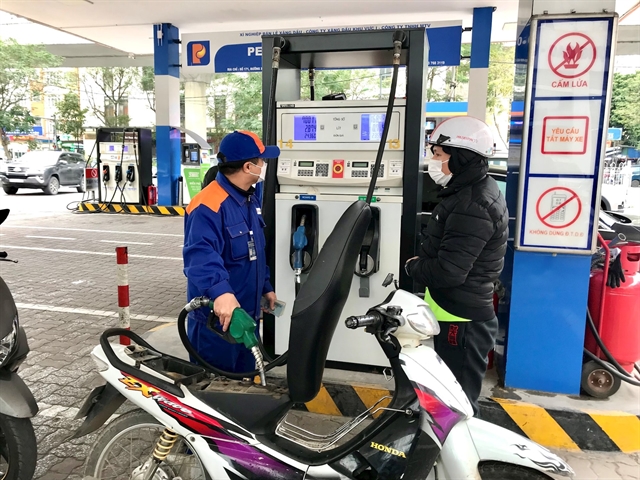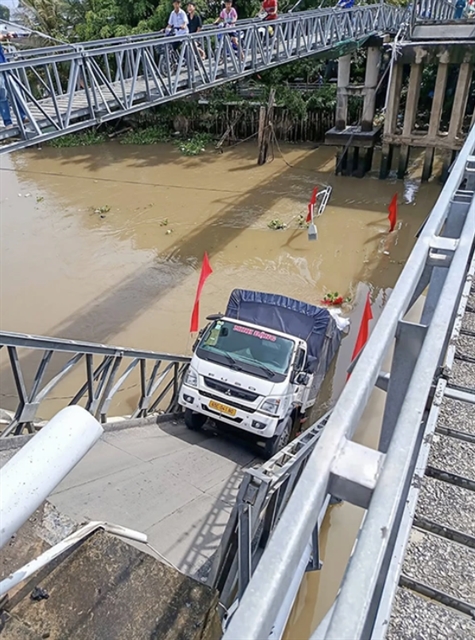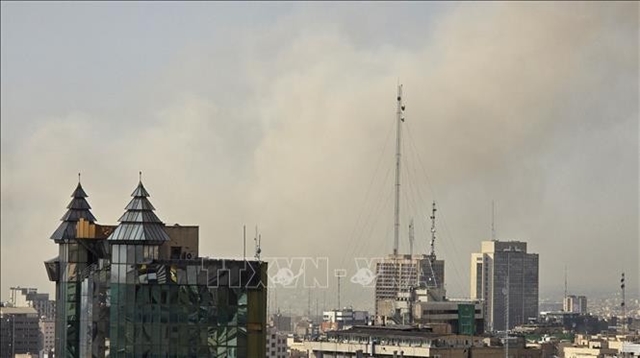 Society
Society
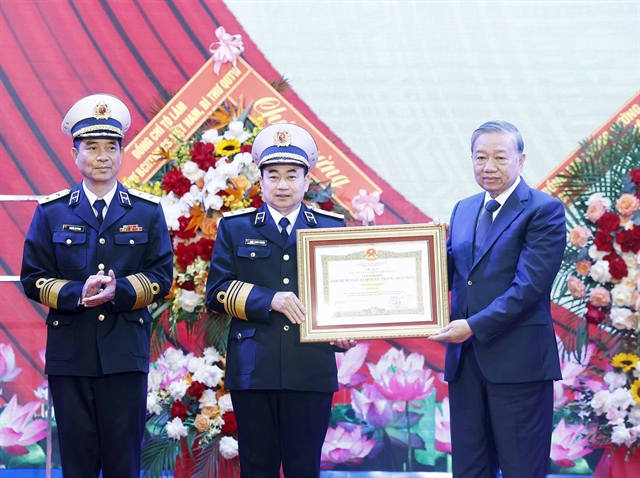
QUẢNG BÌNH – Coming from Cuba, Dr Annet Ramos is used to working in hot weather conditions.
It’s no different for her now she calls Việt Nam home.
At 7am you’ll find Dr Ramos starting her shift at the Việt Nam - Cuba Friendship Hospital, in the central province of Quảng Bình.
She’s been working here for the past four years in the paediatric department taking care of children.
“The healthcare system in Việt Nam is truly different from our system in Cuba,” the 53-year-old said.
“In Cuba, as infectious disease experts for children, doctors can only treat infectious diseases. However, in Việt Nam, the experts have to consider all signs of an illness from infectious diseases to other related symptoms.
“That has helped me improve and become a more well-rounded doctor. For me, Việt Nam represents growth and maturity.”
Her days always begin by meeting with doctors and nurses from the paediatric department to discuss and exchange treatment methods for noteworthy cases before performing check-ups and updating patients’ situations.
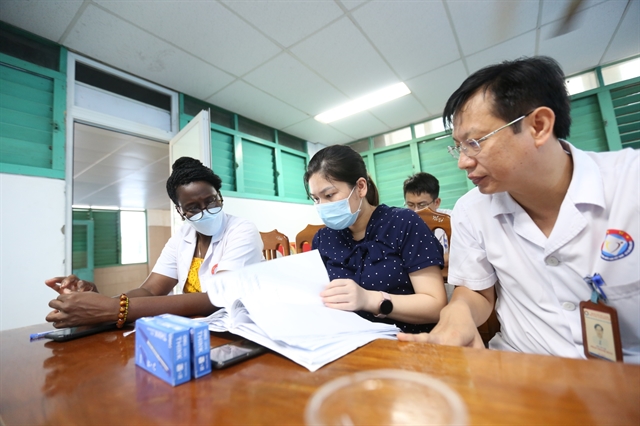 |
| Doctor Annet Ramos (left) is discussing with doctors and nurses from the paediatric department treatment methods. Photos of vtc.vn |
Dr Ramos currently has a number of cases on her books. One is a five-year-old boy, Nguyễn Khiến An, who has been at the hospital for a few days due to dengue fever.
Apart from dengue fever, An also has a pre-existing congenital heart condition. In the past, he has undergone one surgery, which requires regular blood-thinning medication. His given medical history has made Dr Ramos keep him under close observation.
Nguyễn Văn Bồng, An’s father, noticed that Dr Ramos visits patients at least four to five times a day.
Bồng said: “She asks very detailed questions about my son’s symptoms and frequently checks his condition. It may be because of his background disease.”
To all the patients here, this ‘‘foreign” doctor is always enthusiastic and caring for her patients. The language barrier might cause difficulties but she always finds a way to make it easier.
“I know English so it is easy for me to talk with her,” Bồng added.
“But with other families, if there are no interpreters or Vietnamese doctors around, she will use a translation application on her phone to explain the disease to patients.”
Despite the language barrier, her actions and gestures are enough for the children to feel affectionate towards her. Her “secret” to winning over these young patients is her generous care. Many of them were shy and fearful during their first time meeting with Dr Ramos, but after several visits, they become more comfortable and develop trust in the doctor.
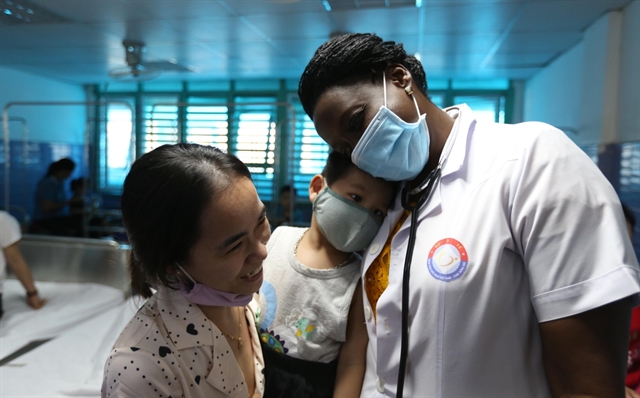 |
| The doctor's “secret” to winning over these young patients is her generous care. |
Dr Ramos said: “With my care, I noticed the children became more familiar and started waiting for me at the door.
“When they see me, they would talk to me in English and even give me candy. The most important thing is that I love children, so I feel happy working here in this hospital when the patients place their trust in me.”
Before coming to Việt Nam, the doctor spent a long time studying and working in medicine in Cuba and other countries. She single-handedly managed to balance her studies, work and raise her son, who now also has a career in medicine.
Doctor Nguyễn Đức Cường, director of the hospital, praised Cuban doctors like Dr Ramos for their diligent and responsible working style.
Dr Cường said: “They are also very friendly and frequently engaging in meetings in normal life. All of them say that they consider Việt Nam as their home and wish to continue working here.”
Dr Ramos is a part of an exchange cooperation programme between the two countries’ Ministries of Health that so far, has seen seven doctors work in Việt Nam since April 2018.
They are experts in various fields such as interventional cardiology, neurosurgery, orthopaedic trauma, oncology, paediatrics and gastrointestinal endoscopy.
Four have finished their work in Việt Nam and returned to Cuba while three are currently still here.
During her career, Dr Ramos has participated in numerous national-level tasks including working in quarantine areas during the H1N1 pandemic in 1988 and in various outbreaks of dengue fever in different regions of Havana.
One of the most memorable moments during her time in Việt Nam was when the COVID-19 pandemic broke out. Like many other hospitals, when the pandemic hit the country, the Việt Nam - Cuba Friendship Hospital faced high-pressure days treating patients.
Dr Ramos felt fortunate that Việt Nam managed to control the pandemic so well, but she’ll never forget the anxiety and challenges that it brought to all the doctors.
When there was a positive case among the paediatric patients, the entire department including doctors and patients’ families had to live together in the quarantine areas for 21 days, which was extremely stressful.
“Everything was tense and painful during that time,” she said.
“Fortunately, everything went well, no one had severe illness or encountered danger.”
After four years, Việt Nam has become more and more familiar to her.
She added: “As time went on, I started to admire and love Quảng Bình and the people here. I have many cheerful and friendly Vietnamese friends.
“I also have opportunities to learn about its beautiful traditions. The city’s beauty made a lasting impression on me. People persistently working towards rebuilding and developing the economy have filled me with a sense of honour to be here.”
At the Việt Nam - Cuba Friendship Hospital, since its inauguration in 1974, the cooperation between the two countries has been consistently maintained.
For Dr Ramos, she plans to continue working in Việt Nam for two more years before heading to Panama, Central America to further enhance her experience in infectious diseases. – VNS


